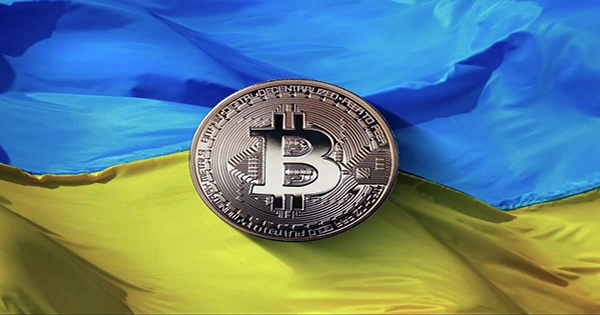A measure to legalize cryptocurrency was enacted by Ukraine’s parliament a month ago, laying the groundwork for the regulation and administration of cryptocurrencies such as Bitcoin and Ethereum. Volodymyr Zelenskyy, the country’s president, signed the measure “On Virtual Assets” into law today, establishing a legal foundation for the country to run a regulated crypto market. “A legislation on virtual assets has been passed by Parliament. In a couple of days, I believe the president will sign it into law. As a result, we make every effort to be as kind to virtual assets as possible. In an interview with TechCrunch earlier this week, Ukraine’s vice prime minister and minister of Digital Transformation, Mykhailo Fedorov, said, “We are maintaining this endeavor during the conflict as well.”
Crypto exchanges and organizations managing digital assets will now be needed to register with the government in order to operate lawfully in Ukraine, according to reports from Cointelegraph, Coindesk, and other digital asset-focused sites, and banks will be able to create accounts for crypto enterprises. According to reports, the law also gives Ukraine’s National Securities and Stock Market Commission the authority to create the country’s digital asset regulations, issue licenses to crypto enterprises, and function as a financial watchdog. (In fact, Ukraine’s parliament approved a law legalizing cryptocurrencies in September, but President Zelenskyy vetoed it soon after, claiming that the government couldn’t afford to set up a new regulatory agency to oversee bitcoin.)

If you believed cryptocurrency was already legal in Ukraine, you’re not alone. According to Chainalysis, even without any regulation, Ukrainians, Russians, and Venezuelans (in that order) have been among the most active retail users of digital currencies by the autumn of 2020. At the time, Chainalysis’s head of research told Coindesk that a “very tech-native populace” and an “industrious startup ecosystem” were propelling Ukraine’s march to the top. (Coindesk also stated that Eastern Europe has a higher rate of cybercrime than other locations, which may have contributed to the high trade volume.)
Ukraine has received tens of millions of dollars in cryptocurrency contributions in the weeks after Russia invaded the country and began killing military and civilians alike, leading an estimated 3 million people to escape the country of 42 million people. (NPR recently compared the number of Ukrainian refugees who have fled to Poland — almost 1.8 million — to Warsaw’s population.) With the new regulation in place, Ukraine’s first crypto exchange, Kuna, will no longer be confined to assisting the country in spending donations directly with crypto-friendly vendors, but will also be able to convert bitcoin to much-needed currency.
Meanwhile, the government has teamed with FTX, a Bahamas-based exchange, to convert crypto donations to help Ukraine’s war effort to cash, which will be deposited at the National Bank of Ukraine. According to Coindesk, FTX and Kuna, as well as Everstake, a staking platform, has partnered with Ukrainian government officials to launch Aid for Ukraine, a donation website for users that accepts donations in Bitcoin, Ether, Tether, Polkadot, Solana, Dogecoin, Monero, Icon, and Neo “to support people in their fight for freedom.”
When it comes to gathering finances from all across the world, crypto donations have been crucial. “We were able to secure $55 million.” Fedorov told TechCrunch on Tuesday that “all of it has been focused toward the demands of the Ukrainian army.” We don’t know if the project is the “first instance of a cryptocurrency exchange offering a channel for crypto donations to a public financial institution,” as Everstake claims, but it’s definitely safe to say it’s one of the first.
None of this is unfolding in the way that Ukrainian authorities anticipated only a few months ago when the nation was highlighted in The New York Times as “The Crypto Capital of the World.” “The major aim is to become one of the top jurisdictions in the world for crypto enterprises,” Alex Bornyakov, deputy minister of Ukraine’s years-old Ministry of Digital Transformation, told the outlet before the unthinkable happened in November. “We feel that this is the new economy, that this is the future, and that this is something that will help our economy grow.”














